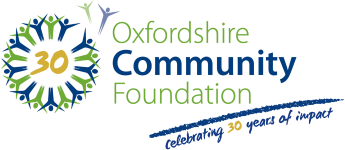Annual festival Folk Weekend: Oxford will be held on 17th-19th April 2015, and holds events throughout the city centre. This year, funding from OCF will help them include a Makaton project in the event, aimed at people with communication difficulties.
The Makaton project will work with a group of performing artists to translate 12 folk songs to be sung with Makaton signing. These will be performed at a ‘relaxed’ concert during Folk Weekend: Oxford. Relaxed performances are a fast-growing phenomenon, allowing adults and children with a wide variety of needs to enjoy high-quality performances, without having to worry if they need to make noises or move around during the event.
Makaton is based on British Sign Language, but is always used alongside spoken English as support for communication rather than a replacement for the spoken word. There are over 100,000 children and adults who use Makaton either to support speech or as their primary means of communication.
The £2,000 grant awarded by Oxfordshire Community Foundation will help fund the artist/translator. The project is part of a wider accessibility drive by Folk Weekend: Oxford; for the last two years the festival has included a ceilidh specially for children from special needs schools in Oxfordshire. Oxford University Community Fund has also offered a grant towards these activities, which this year will include two SEN ceilidhs, and the debut performance from the Makaton project, performed with a live band.
Folk Weekend committee member Becca Ritchie-Timms is delighted with the support the project has received so far. “Our aim is that everyone feels welcome at our festival, and can find something there that they can enjoy. People with communication difficulties often inhabit a confusing world, which can move very fast around them and leave them feeling excluded, and frustrated. We believe that music and singing are for everyone, and have set up this project to enable more people to access the music that we all love.”
Festival Director and project leader Cat Kelly says: “I hope that other festivals and events take a look at what we’re trying to do, and start to consider whether it’s something they ought to be offering. I’m really hoping to reach out to the folk world with this project and show them that it’s possible to produce accessible and inclusive performances without compromising the quality or integrity of the music.”

